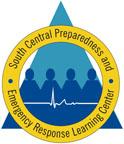
E015: Disaster Sanitation
Course Description:
This course provides an introduction to the role of environmental health in emergency response. Relations with key partners and first and second priority actions are discussed. The course covers common issues found with water, wastewater, shelter, vector control, buildings and hazardous materials during a disaster event. Successful completion of the overall course examination is required in order to receive credit for the course.
Target Audience
Academic Faculty/Staff, Federal Government Employees, State Government Employees, Local Government Employees, Non-Government Employees and Students
Learning Objectives
- To develop an understanding of the health hazards and environmental issues associated with disasters
- To determine first and secondary response actions
- To understand the basic facts for protecting food and water before, during and after emergency events
- To become familiar with how vectors, water and wastewater are impacted by disasters
- To understand basic concepts of building assessment following disasters
- To develop an understanding of how solid waste and hazardous materials are collected and disposed following a disaster event
Instructor:

CAPT Mark D. Miller, RS, MPH
CAPT Mark D. Miller, RS, MPH, is a Senior Environmental Health Officer with the Centers for Disease Control and Prevention. He holds a Bachelor of Science in Environmental Health from East Central University in Ada, Oklahoma and a Masters in Public Health from the University of Texas and is a Registered Sanitarian with the state of Texas. His 22 years of environmental health experience includes, water, wastewater, food safety, injury prevention and hazardous waste. He has served in positions with private industry, Indian Health Service, Agency for Toxic Substances and Disease Registry and currently the Centers for Disease Control and Prevention.
Emergency Response Experience:
- Plague Investigations Navajo Reservation - 1988, 1990
- Hanta Virus Outbreak - Four Corners Region - 1993
- 911 Attacks - New York City - 2001
- Anthrax - AMI Building Boca Raton, Florida -2001
- Hurricanes Jeanne Francis and Ivan - Florida - 2004
- Tsunami - Environmental Health Team Lead, CDC Emergency Operations Center - 2005
- Hurricanes Katrina and Rita - Mississippi, Louisiana, Texas - 2005
Available Credit
- 5.00 Participation/CETulane Professional and Continuing Education (PaCE) awards 5.00 hour(s) of credit for completing E015: Disaster Sanitation
Price
Required Hardware/software
System Settings
This course is designed to work most effectively if your computer and internet connection meet certain minimal requirements. This course can be accessed using a Windows 10 PC or a Mac with High Sierra1, Mojave, or Catalina. Pop-up blockers should be disabled when viewing the course. Internet Explorer 11 (for Windows 10), or the current version of Google Chrome, Mozilla Firefox, or Apple Safari (for Windows 10 and or Mac) is required. Many of our courses require Java and JavaScript enabled.
Links to External Websites
Links to websites outside this course will open in a new window or tab. Some browsers may minimize the course window. If this occurs, maximize the course window to return to the course.
Adobe Acrobat Reader (for desktops and laptops)
Adobe Acrobat Reader is required to access some documents in this course. If you need to download a free copy of Acrobat Reader, click here.
Internet Connection Speed
A minimum download speed of 1.5 Mbps is recommended for an optimal experience, which is commonly the speed associated with a basic DSL or a cellular/satellite connection. A faster connection, such as cable or fiber service, with further enhance your online experience. A Wi-Fi connection is generally acceptable, but it is dependent upon one of the two services mentioned above. You can check your internet connection speed at http://www.speedtest.net/.

 Facebook
Facebook X
X LinkedIn
LinkedIn Forward
Forward